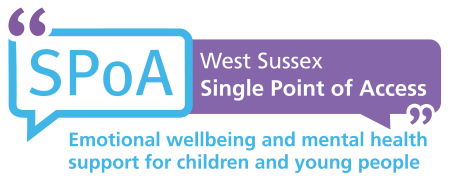What is it?
Mental health includes our emotional, psychological, and social well-being. It affects how we think, feel, and act. It also helps determine how we handle stress, relate to others, and make choices. Mental health is important at every stage of life, from childhood and adolescence through to adulthood.
Why is it important?
Good mental health allows children to think clearly, develop socially and learn new skills. Additionally, good friends and encouraging words from adults are all important for helping children develop self confidence, high self-esteem, and a healthy emotional outlook on life.
How do we promote and support Mental Health & Wellbeing at St Mary's?
At St Mary's we support children's emotional intelligence and ability to learn self-regulation strategies and tools through the use of the Zones of Regulation.
Children access their Zones of Regulation 'Working Walls' in their classrooms daily to check-in. Children alert the adults looking after them, as to how they feel at different stages throughout the day. Adults can then respond to individual children's needs, or promote their use of self-regulation strategies.
As part of the Zones programme, we proactively teach children how to identify their 'zone/state', and the specific emotion(s) they are feeling. Children refer to these initially as, 'red, yellow, green, or blue zone' feelings. Children's ability to describe their emotions grows with their development, so that they can become further precise in labelling their feelings, explaining why they feel this way, and later developing independent strategies to support their emotions.
Within the school children move to create their own 'Zones of Regulation toolbox', which helps them identify personal strategies to move from one zone/state, to the next.
Zones of Regulation is our common language at St Mary's for helping children identify their emotions, grow greater awareness and understanding of other people's emotions, and recognise that all emotions are typical and accepted. By doing so, we share a whole-school approach of recognising emotions as a healthy response to different situations, and develop more effective ways for children to regulate so that they can have successful social interaction, develop greater problem-solving and resilience and achieve increased self-esteem and satisfaction in all areas of their lives.
The Zones of Regulation approach underpins our therapeutic response, as it forms the basis of 'behaviour is a form of communication'. From this understanding, we can develop a more holistic response to how children can develop healthy and life-long strategies for mental health and wellbeing.
How can we help?
Supporting your child with their mental health.
This year's Children's Mental Health Week 2025 is nearly here:
Please see our latest Inclusion Newsletter for the range of activities children will be partaking in.
Helpful Links:
https://www.westsussex.gov.uk/education-children-and-families/childrens-mental-health-and-emotional-wellbeing/ The West Sussex Single Point of Access (SPoA) is a dedicated service which provides a simplified single route to access specialist emotional wellbeing and mental health support. The SPoA helps direct you to the right service, eliminating the need to refer to multiple services.
The West Sussex Single Point of Access (SPoA) is a dedicated service which provides a simplified single route to access specialist emotional wellbeing and mental health support. The SPoA helps direct you to the right service, eliminating the need to refer to multiple services.
Led by Sussex Partnership NHS Foundation Trust, the service is delivered in partnership with West Sussex County Council's Youth Emotional Support Service (YES) and YMCA Dialogue.
e-wellbeing is the digital front door for West Sussex SPoA. Visit the e-wellbeing website for more information.
https://www.sussexcamhs.nhs.uk/our-services/service-finder/west-sussex-single-point-advice-spoa
Relationships
Use these links to help you access support with relationships.
https://www.supportline.org.uk/problems/relationships-and-family/
https://www.familylives.org.uk/advice/your-family/relationship-advice/

If you would like to discuss any worries you may have about your child regarding their mental health and wellbeing please contact your child's class teacher in the first instance, who can then work with you and your child alongside our Inclusion Leader and Learning Mentor.